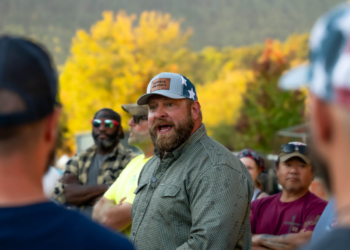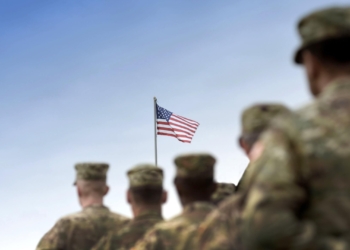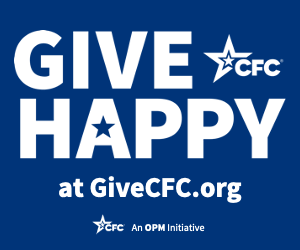Transitioning from a military to civilian career can be challenging but overcoming challenges is what our veterans are adept in.
The most important weapon you need to face this challenge of transitioning to a civilian career is an updated and professional civilian resume.
That’s precisely what you will get in this article — a step-by-step process on how to write a veteran to civilian resume.
Here we will be sharing all the resources and information you need to write a great civilian resume for your job search.
First, a few basics:
Create a master military resume
Before you start writing your civilian resume, create a master military resume.
This will be an easier task than writing a civilian resume as you are already familiar with military lingo and terminology.
Beginning with a master military resume will ensure you have the best and the most complete reservoir of information to pull from and translate into your civilian resume.
You will also find it helpful to use your Verification of Military Experience and Training (VMET) document, as well as fitness evaluations, to brainstorm content for your master veteran resume.
Plan your job search
Now that you have your military career drawn out and represented on paper, it’s time to have a long, hard look at it.
Your goal now is to find the likeliest civilian career paths you might choose to pursue.
Narrow down the possible industries you would be a good fit for and you would like to work in. Then, further, narrow down your preferred positions or job types.
Translate your veteran resume into a civilian resume
Once you have your master military resume on hand and possible career paths in mind, it will be much easier to craft your civilian resume.
Use that master resume and pull out the most relevant information that aligns with your targeted roles and industries. You might need different versions for different industries you are targeting.
But one thing that you should always remember is to translate all the military references, terminologies, and jargon into civilian terms.
Use this military-to-civilian skill translator to discover a variety of potential civilian applications for your military skills and experience.
Also, in this military to civilian resume how-to guide, you will find the translations of most of the military terms and jargon.
Resume formats
There are three resume formats that you should mostly be concerned with, as these will be the best formats to use as you craft your civilian resume:
- Chronological resume format – the experience section is prominent.
- Functional resume format – the skills section is prominent.
- Combination resume format – skills and experience get equal visibility.
If you apply for a job where your military experience would be the most valuable factor, go for the chronological resume format.
If your military experience would not seem to help much with the target job description, choose either the functional or the combination resume format.
With a functional or combination resume, you get more flexibility in showcasing only the most relevant transferable skills from your active duty roles and experience and leaving out what’s not as pertinent.
Now, it’s time for the main task of actually crafting your civilian resume.
Here’s a step-by-step breakdown of all the resume sections and how to write them.
Resume summary
You might be tempted to use a resume objective statement on your resume, but opting for a professional summary section would be a much better option.
Resume objectives have more or less gone out of fashion lately.
Also, professional summaries actually help showcase all the values you bring to the table instead of objective statements of what you want to do.
A resume summary is a brief paragraph of four to five sentences highlighting the most critical aspects of your career in relation to the job you are applying for.
Showcase only the most relevant and impressive accomplishments, skills and events from your military career.
At all times, be mindful of the use of language. Translate all of your military skills, accomplishments, and events into more common terms, keeping the target civilian job in mind.
Read: What to expect from a job search after getting out of the Army.
Skills or core competencies
Skills or core competencies (also called highlights of qualifications) is yet another major section of your resume.
The skills or core competencies section will list and briefly describe all the skills you have that would be vital for the role you are applying for.
Depending on the resume format you choose, this section:
- Can be a shortlist of relevant skills (chronological resume)
- Can also include descriptions of each of the skills (functional resume)
Use the skill translators mentioned above to translate your military skills into civilian applications.
Review job posts of your targeted positions and go through LinkedIn profiles of the people already occupying those roles to get a view of the skills you would want to include on your resume.
Experience section

Many veterans find it difficult to translate their military duties and accomplishments into civilian terms for civilian jobs.
On the surface level, many military activities might seem far removed from what is being done in the civilian world.
But is this really the case?
With careful observation, you will see that many things you have done in the military sector have practical applications that can be transferred to the realm of civilian jobs.
Let’s learn from an example:
Suppose an individual’s military duties and accomplishments include the following:
- Developed and oversaw programs such as Officer Professional Development (OPD) or Non-Commissioned Officer Developmental Program (NCODP).
- Conducted the Troop Leading Procedures and Military Decision Making Process.
- Planned maneuvers, assigned duties, and communicated effectively with other on-duty personnel.
These responsibilities are filled with military jargon. A civilian hiring manager would find it very difficult to relate these duties to the targeted role.
Let’s translate this experience into civilian terms:
- Developed numerous training modules for employee professional development.
- Led teams of over 70 members to fulfill a variety of high-stakes operational goals.
- Planned, developed, and managed projects, coordinating among large teams.
Can you see how language can make the same military duties more relevant for a civilian job?
Once you practice with this a little, you’ll get the hang of it, and it will become second nature.
Education, training and courses

For a veteran to civilian resume, you won’t need to focus much on the education section.
Just mentioning your highest degrees, name of institutions, and one or two significant accomplishments should be sufficient.
If your skills and experience section is already heavy enough and the education section wouldn’t add much value for the role you are targeting, you can leave it out of your resume altogether.
Read: Merivis brings Salesforce training to military vets and spouses
You can also choose to highlight your on-the-job training, as well as courses you took and certifications you earned during active duty.
Just make sure to describe them in an easy-to-interpret civilian lingo. Also, only include the aspects that are directly related to the job you are applying to.
To translate your military training and courses for civilian jobs, you can do an online search for similar civilian training/courses and use the training descriptions as a reference.
Here are a few more basics before you jump into writing your veteran to civilian resume:
- Keep your resume short and simple. In almost all the cases, a one- to two-page resume would be the best.
- Always tailor and target your resume to the job you are applying for.
- Pay close attention to the job description and find out the major keywords to include on your resume for getting past the applicant tracking system (ATS) technology.
- Use numbers to quantify your accomplishments whenever you can.
- Avoid discussion of conflict or active combat experience.
- Avoid irrelevant information. Keep everything closely aligned to the target job.
- Always double-check and proofread to get rid of typos and errors. It would be best to find someone from the civilian world to go over your resume once to make sure that everything is making perfect sense.
Many veterans find it helpful to get their first resume written from an expert military to civilian resume writer.
You, too, can consider seeking expert help to get things right the first time.
Once you get the hang of it, you can take it from there for each new job you apply to.

















































